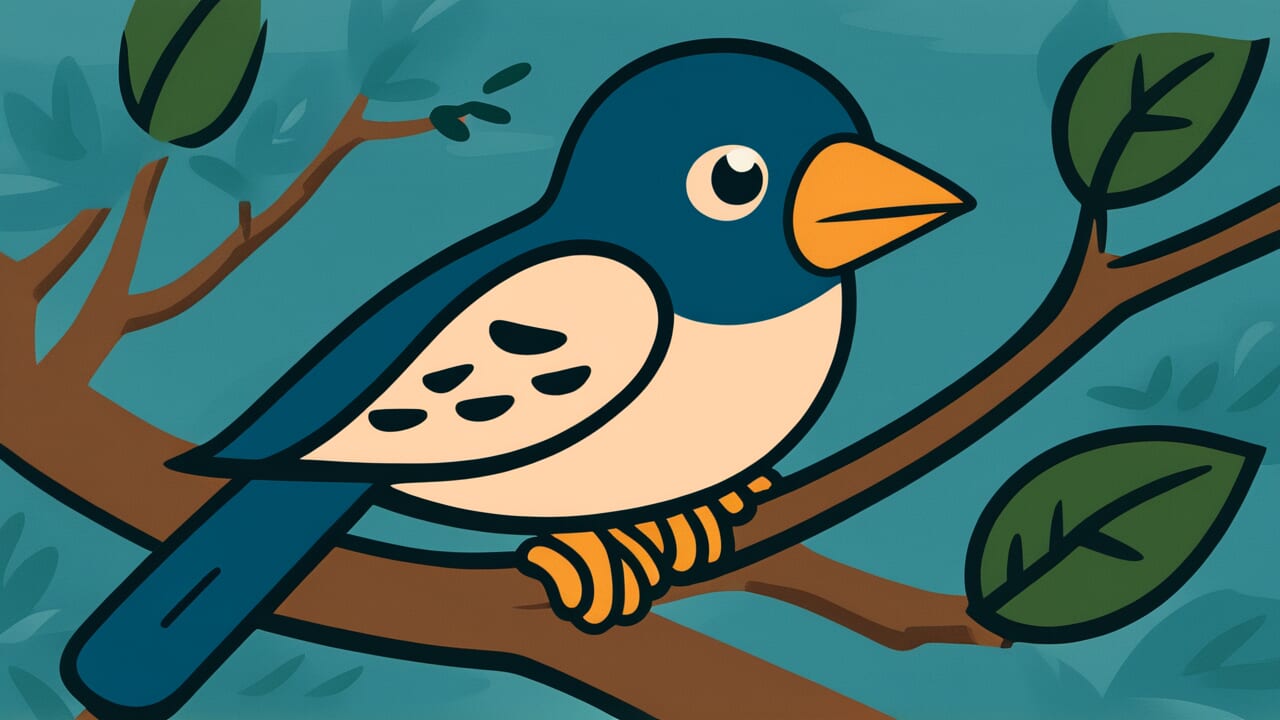How to Read “A tired bird doesn’t choose its branch”
Tori tsukarete eda wo erabazu
Meaning of “A tired bird doesn’t choose its branch”
This proverb shows a basic truth about human nature. When we’re exhausted, we lose the ability to be picky about our choices.
Normally, we carefully compare different options before deciding. When choosing a job, we consider salary, location, job duties, and future prospects. But extreme fatigue or desperate situations make calm judgment impossible.
We end up grabbing whatever option is right in front of us.
This proverb describes people’s behavior when they’re backed into a corner. Someone exhausted from a long job search accepts a position at a bad company.
A person working endless overtime takes on tasks they’d normally refuse. These situations are described as “A tired bird doesn’t choose its branch.”
In modern society, this proverb often serves as a warning. It teaches us that losing our margin for error dulls our judgment.
We risk making choices we’ll regret later.
Origin and Etymology
The exact source of this proverb is unclear. However, the structure of the phrase offers interesting insights.
The expression “A tired bird doesn’t choose its branch” likely came from observing bird behavior. Migratory birds fly long distances and eventually reach their physical limits.
Normally, birds carefully select their perch. They look for safe spots, sunny locations, and places near food sources. But when extremely tired, they simply land on the nearest branch.
Ancient observers noticed this behavior applied to humans too. They turned this observation into a proverb.
Japan has long valued nature observation. People have always drawn lessons about human society from animal behavior.
Many other proverbs feature birds as subjects. These familiar creatures provided rich sources for teaching wisdom.
The word “doesn’t choose” is particularly interesting. It doesn’t just mean “can’t choose.” It shows a state where the act of choosing itself must be abandoned.
Fatigue strips away judgment, leaving only survival instinct. Our ancestors captured this moment perfectly in just ten characters. Their keen observation is remarkable.
Interesting Facts
Science confirms that birds actually lose judgment when fatigued. Research on migratory birds shows they land in dangerous places after long flights.
Places they’d normally avoid become acceptable. This proves the accuracy of the proverb’s observation.
Birds use surprisingly complex criteria when choosing branches. They consider safety, air circulation, visibility, proximity to food, and distance from other birds.
They judge all these factors instantly when selecting a perch. Our ancestors carefully observed how fatigue erased this complex decision-making process.
Usage Examples
- After three all-nighters preparing materials, I was like a tired bird that doesn’t choose its branch. I submitted a shallow proposal.
- Exhausted from a long job search, I experienced “A tired bird doesn’t choose its branch.” I immediately accepted the first company that offered me a position.
Universal Wisdom
“A tired bird doesn’t choose its branch” reveals a universal truth. Human judgment has limits. We pride ourselves on being rational beings.
But our rationality doesn’t run on unlimited energy. Fatigue, a physical state, easily dominates our thinking, which is a sophisticated mental activity.
This proverb has endured because everyone has experienced this. Even wise people make poor judgments when exhausted. Even careful people make mistakes when tired.
This isn’t weakness of will. It’s a structural limitation of being human.
Our ancestors understood the importance of recognizing this limit. This proverb warns people who think they’re not tired but want to make important decisions.
It also cautions against judging too harshly those who make mistakes due to fatigue.
Looking deeper, this proverb teaches the value of “margin.” Freedom of choice is actually a luxury we can only exercise with physical and mental reserves.
Not being cornered, not becoming exhausted—these are important life strategies. The proverb quietly tells us this truth.
When AI Hears This
The human brain makes about 35,000 decisions daily. If we searched for perfect options every time, our energy would run out.
Nobel laureate Herbert Simon explained this reality with the concept of “satisficing.” Instead of “optimizing” by seeking the best choice, “satisficing” by accepting good-enough options is actually the rational strategy.
This proverb is fascinating because it shows how physical fatigue changes decision-making thresholds. Cognitive psychology research reveals that human decisions require “cognitive resources.”
When these resources are depleted, judgment standards drop significantly. For example, analysis of judge’s verdict data shows they make more “status quo” decisions during tired pre-lunch hours.
After breaks, careful judgment returns.
Interestingly, this “lowering of standards due to fatigue” isn’t necessarily bad. A bird that rests on a decent branch survives better than one that crashes while searching for the perfect perch.
In systems thinking, the law of diminishing returns applies to choice costs versus choice quality. Finding an 80-point option might take 10 minutes.
Finding a 95-point option might take an hour. Fatigue is a biological alarm that forcibly adjusts this cost calculation.
Lessons for Today
This proverb teaches modern people the importance of knowing their limits. We live in a culture that values constant effort.
But we can’t ignore the fact that fatigue steals our judgment.
If you face an important decision, first check your condition. Are you getting enough sleep? Do you have peace of mind?
Are anxiety and urgency controlling you? If you’re tired, have the courage to postpone the decision.
This proverb also promotes understanding of others. When someone makes a clearly poor choice, imagine their situation before blaming them.
Perhaps they were so cornered they lost even the ability to choose.
Modern society overflows with options. But having many choices and making good choices are different things.
What truly matters is maintaining a state where you can choose calmly.
Rest when tired. This isn’t laziness. It’s a strategy for a better life.
That’s what “A tired bird doesn’t choose its branch” teaches us.



Comments